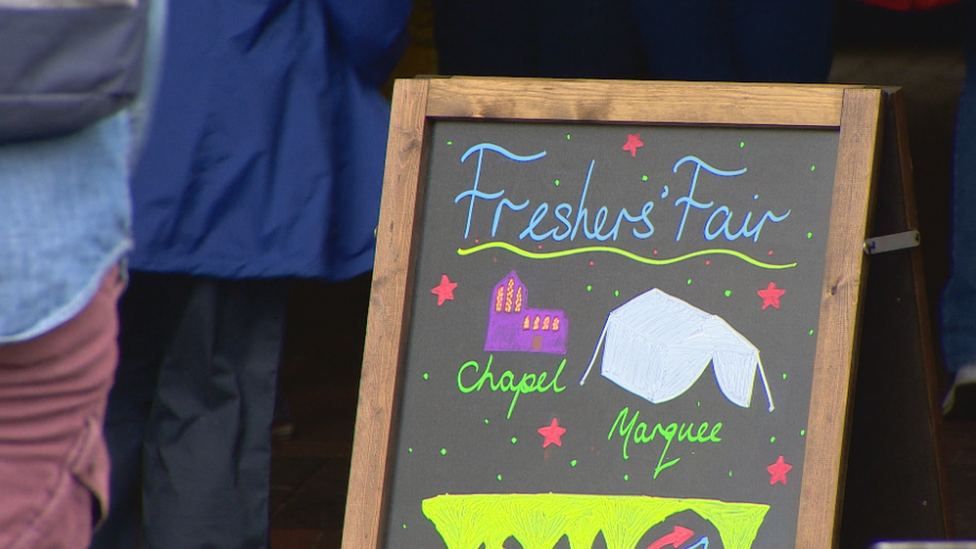Sexual violence guide created for Scottish universities
- Published
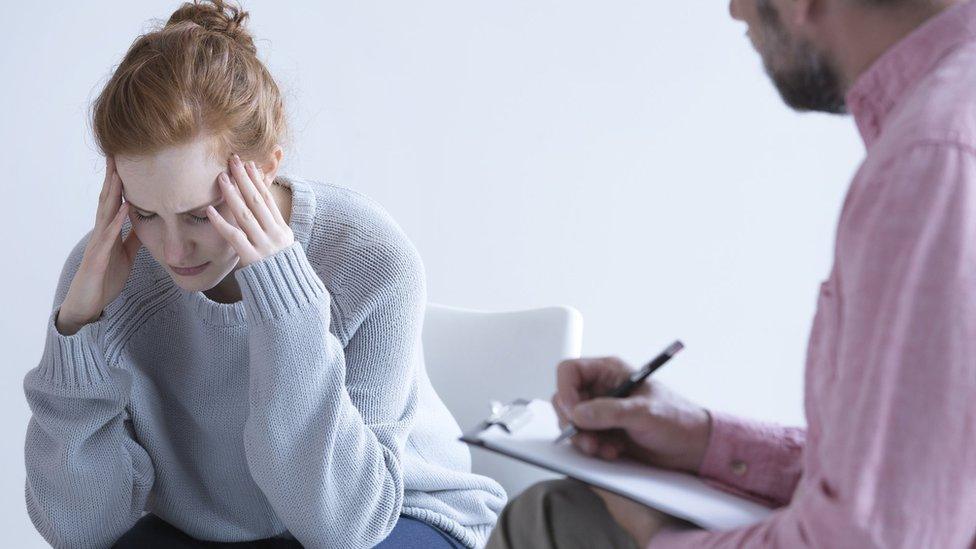
The guide highlights the need for well-publicised support information for students
Practical guidance to help Scottish universities and colleges tackle sexual violence and harassment on campus is to be published.
The guide offers advice and training for staff and highlights the need for well-publicised support information for students.
It follows a campaign by the mother of a student who took her own life after being in an abusive relationship.
The resource has been produced by Strathclyde University.
The Scottish government is providing £400,000 towards the rollout and implementation of the guide which also discusses the need for better data collection.
The government has made it clear that universities and colleges will need to adopt appropriate policies and procedures.

Emily Drouet was a first year student at Aberdeen University
The toolkit takes forward principles set out in the #emilytest campaign set up by Fiona Drouet, in memory of her daughter Emily.
Emily, a first year law student at Aberdeen University, was in an abusive relationship with another student and went on to take her own life.
Her mother has been spearheading a campaign against domestic abuse and gender-based violence and has been calling for greater help and support for students.
'Emily's legacy'
Mrs Drouet, from Glasgow, said: "The launch of the toolkit, along with the ministerial letter of guidance to the Scottish Funding Council, is a significant turning point with regards to gender-based violence on campus.
"It is a very important day for all Scottish students.
"This is Emily's legacy and I hope both staff and students will feel empowered by this resource."
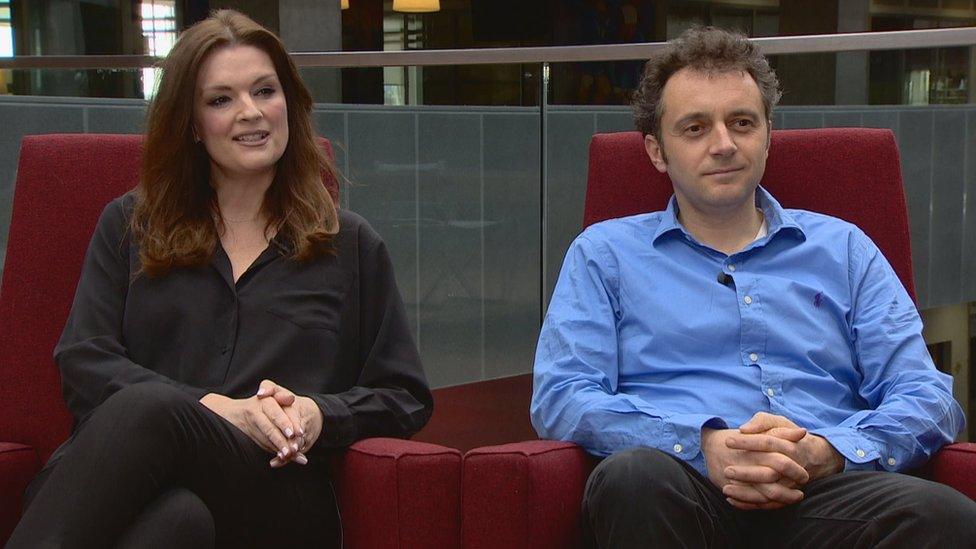
Fiona Drouet and her husband Germain have been campaigning against gender-based violence since her daughter Emily's death
She added: "Institutions now have the help they need to pass the #emilytest and I believe that had this been in place while our daughter was at university it could have saved her life.
"We couldn't help Emily but the #emilytest can save others - a legacy Emily would be proud of."
The Equally Safe in Higher Education Toolkit recommends that each university:
Develops a strategy and implementation plan to tackle gender-based violence
Establishes a strategic group to oversee the implementation of the strategy and appoint a named champion or co-ordinator to report on progress
Introduces guidance and training for staff to help them respond to any disclosures of gender based violence and provide support for victims
Develops a secure data collection system to record incidences of gender-based violence
Ensures well-publicised points of contact for students reporting gender-based violence
Introduces policies for staff and students - including a clearly-established code of conduct, disciplinary procedures and sanctions for perpetrators
Further and Higher Education Minister Shirley-Anne Somerville said: "Universities and colleges have a duty to foster a culture on campus that is clear in its condemnation of gender-based violence and gives staff and students the confidence to report unacceptable behaviour.
"That is why I have made the adoption of the policies and procedures outlined in this toolkit a key feature of my letter of guidance to the sector this year.
"I know universities and colleges are up for the challenge and I am keen to see this commitment translate into real, demonstrable action and change for women living, working and researching on campus."
Strathclyde University received more than £600,000 in funding over two years from the Violence Against Women and Girls Justice budget to pilot a two-year project to develop the guide.
It was developed by the university in collaboration with several organisations including Police Scotland, NUS Scotland, Glasgow and Clyde Rape Crisis Centre, the Scottish Women's Rights Centre and Scottish Women's Aid.
- Published20 November 2017

- Published21 September 2017
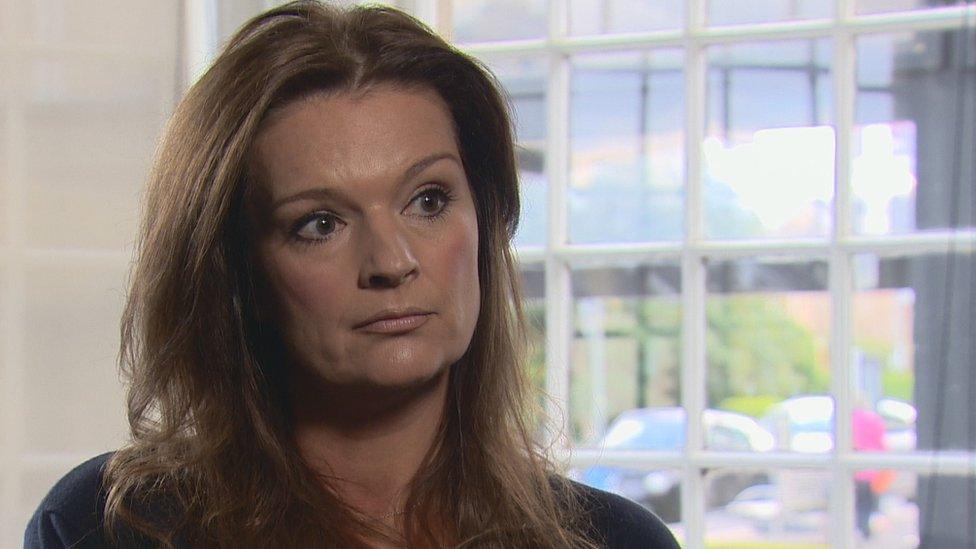
- Published12 July 2017
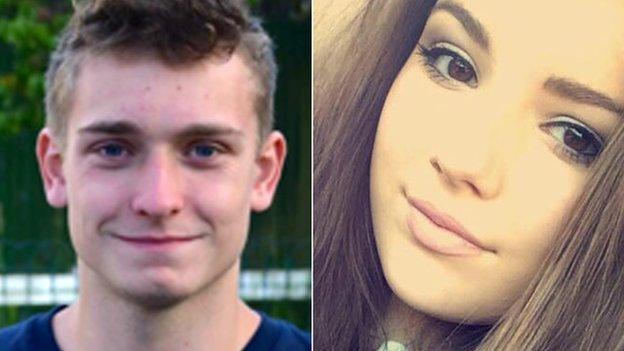
- Published23 May 2017

- Published15 September 2016
